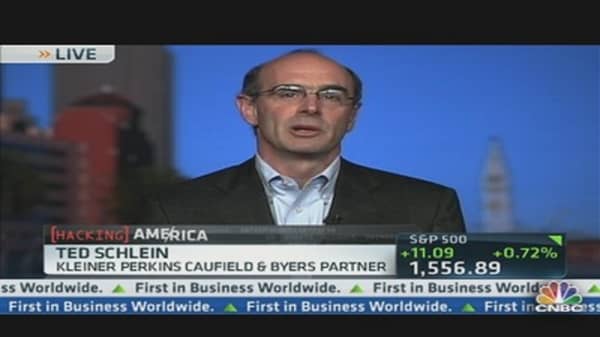Cybercriminals aren't the only ones cashing in on espionage and hacking attacks. There's a slew of smaller security software companies that are also poised to rake in profits as cyberthreats mount.
With cyberattacks continuing to bombard government agencies and companies, there's growing pressure to spend more on securing the networks and platforms where valuable information lives. And this bodes well for security companies—small as well as large, experts say.
"There is a huge amount of runway for security software companies to sell their technology to enterprises around the world to guard against hackers and protect loss of data that could be devastating to companies," said Daniel Ives, an analyst at FBR Capital Markets.
(Read More: Threat of 'Spectacular' Cyberattack Looms: Official)
In fact, only 15 to 20 percent of all private enterprise and federal agencies combined have upgraded their security to the level needed to keep up with the current state of threats, Ives said, which makes it a ripe market for investing.
"I think part of what's happened is there's much more sophisticated types of security out there now that could guard against the threat environment and it's brought security software to the top of IT spending lists," he said. "You can't put security spending into the closet anymore."
(Read More: 10 Ways Companies Get Hacked)
Companies that are focused on network security are some of the best plays in the space, he said.
Some high growth security software companies that have carved out solid segments in the sector include Palo Alto Networks, Fortinet and Sourcefire, said Ives, who has a buy rating on those stocks.
"Those three," he said, "have separated themselves from the pack. They are focused on network security, and a good proportion of spending is on the network."
Other companies that are also likely to get a boost are Imperva and Proofpoint, he said.





